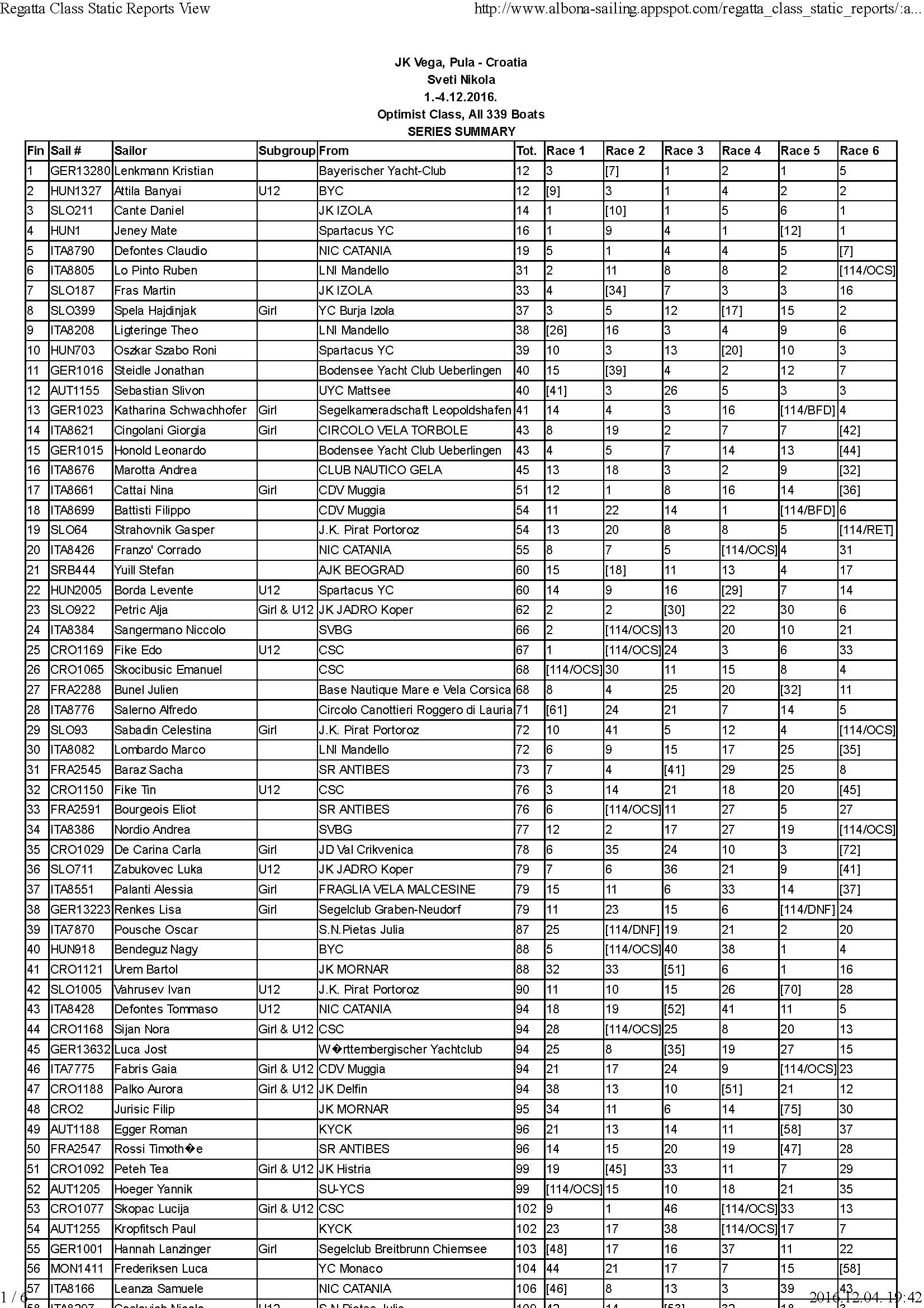Scoring systems in large fleets
Hello everyone!
This post, which dives into different scoring systems, links back to the previous discussion on course types. Although scoring might seem like a straightforward topic, it has its nuances!
Sailors who competed on the classic Olympic triangle course likely remember the different scoring system used back then: the “bonus” or high-point scoring system. (According to Wikipedia, this system has been in use since the 1968 Olympics.)
To clarify, here’s a summary table comparing the
bonus system with the current low-point scoring system:
|
Palce |
Bonus System (previously used, points awarded) |
Low-Point System (current, points awarded) |
|
1st |
0 |
1 |
|
2nd |
3 |
2 |
|
3rd |
5,7 |
3 |
|
4th |
8 |
4 |
|
5th |
10 |
5 |
|
6th |
11,7 |
6 |
|
7th+ |
place number + 6 |
place number |
Key Differences Between the Systems:
- Bonus System: Between 1st and 6th place, there was more than a one-point difference between positions, but from 7th onward, just like in today’s system, each subsequent place differed by only one point.
- Low-Point System: No extra “reward” for finishing early; the point difference between 1st and 2nd is the same as between, say, 20th and 21st place.
On the Olympic triangle course, with its three upwind, two reach, and one downwind leg, it was crucial to finish in the top 6 to secure bonus points. With the shift to trapezoid courses in fleet racing, the low-point scoring system was introduced—where your score directly reflects your finishing position. I remember the initial confusion when this system started being used! The goal was to make competition outcomes tighter, reducing large point gaps.
There’s room for debate about whether it’s ideal that, in a 100-boat fleet, finishing 1st versus 2nd has the same point difference as finishing 99th versus 100th. This system underscores the importance of every point since a single point lost to a wind shift, wave, or missed opportunity could make all the difference in the final standings.
The Value of One Point
Looking at Hungarian Championships from 2005 to 2017 (the only results I have on hand), 1 point made the difference in four out of thirteen youth championship titles—over 30% of the cases! In three instances, there was a one-point gap between 1st and 2nd place, and in one case, the two sailors were tied on points. For those involved, that single point made a world of difference.
Group Assignments in Large Fleets
In larger regattas, where the fleet can’t start together, sailors are divided into groups, adding another dimension to scoring. Two main grouping systems are typically used:
- Daily re-assignments based on performance.
- Qualifying races, followed by grouped races (Gold/Silver/etc.), where sailors stay in their assigned group for the finals.
While groups are reassigned daily, finishing place and the points awarded within that group carry more weight when calculating overall standings.
Example:
Let’s say you’re racing at the Mikulás Cup in Pula with 300 sailors split into three groups. You finish 15th, earning 15 points. Unfortunately, there’s also a 15th place in each of the other two groups. This puts you at 45th in the overall ranking. If you had overtaken just one more boat, you’d improve your overall ranking by three points!
In larger fleets, places are multiplied by the number of groups, which makes consistent finishes even more critical. Practical experience shows that finishing between 1st and 10th typically keeps you within the top 10 in the final results, while a 15th-20th or lower result can multiply based on the number of groups.
Strategic Impact on Group Rankings
If there are five qualifying races, and you pass just one boat before the finish in each race, you’d improve by three points per race or 15 points overall! This could be the difference between making a higher-ranked group, impacting your selection points (e.g., Palamós/Workum, which are also selection events). At these events, with five groups, each missed place means a potential loss of five points—or five points gained by overtaking one more boat.
Summary
When sailing in a large fleet, it’s essential to keep the scoring system in mind as part of your fleet strategy. Overtaking even one boat can make a significant difference in your final ranking, so fight until the end—every point matters!
Good luck, and remember, every point counts!
